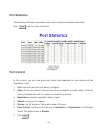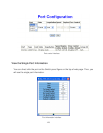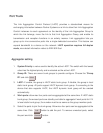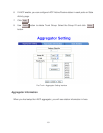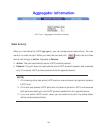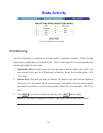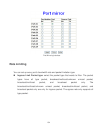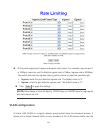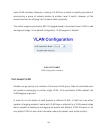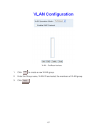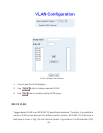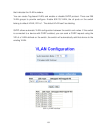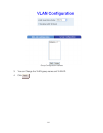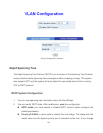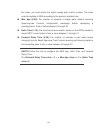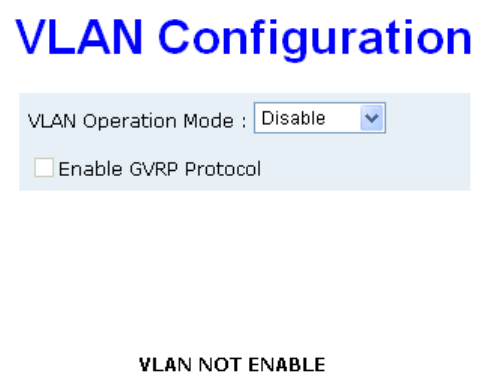
136
same VLAN members. Basically, creating a VLAN from a switch is logically equivalent of
reconnecting a group of network devices to another Layer 2 switch. However, all the
network devices are still plug into the same switch physically.
The switch supports port-based, 802.1Q (tagged-based) and protocol-base VLAN in web
management page. In the default configuration, VLAN support is “disable”.
VLAN Configuration interface
Port-based VLAN
Packets can go among only members of the same VLAN group. Note all unselected ports
are treated as belonging to another single VLAN. If the port-based VLAN enabled, the
VLAN-tagging is ignored.
In order for an end station to send packets to different VLANs, it itself has to be either
capable of tagging packets it sends with VLAN tags or attached to a VLAN-aware bridge
that is capable of classifying and tagging the packet with different VLAN ID based on not
only default PVID but also other information about the packet, such as the protocol.



